Many MEPs intervened at today’s Intergroup session asking the Commission for concrete answers on how it is going to make the recently adopted Strategic Guidelines for a More Sustainable and Competitive EU Aquaculture compatible with the Farm to Fork Strategy. The objective of the Strategic Guidelines is for the Commission and Member States to develop the aquaculture sector in a way that is in line with the European Green Deal and the Farm to Fork Strategy. However there was much scepticism from MEPs that this objective can be met.
Representing the Commission was Lorella de la Cruz Iglesias, the Deputy Head of Unit for Blue Economy Sectors, Aquaculture and Maritime Spatial Planning from DG MARE. Ms de la Cruz Iglesias gave a very informative presentation, covering the various plans the Commission has in relation to the aquaculture sector, which includes expanding the sector as well as making it more resilient, competitive and sustainable. But what does this mean for fish welfare, and has the Commission considered other aquatic species?
Footage of an investigation into the transport and slaughter of fish was shared by Dr Luca Melotti, a scientific expert on animal welfare. Disturbing evidence of the speed and force at which fish are loaded during transport, including the use of ice slurries as well as multiple blows (rather than a sufficient single hit) to fish as a slaughter method, really highlighted the need for fish to be included in the upcoming revision of the Transport and Slaughter Regulations.
MEP Ripa (The Greens, Germany) expressed her disappointment on the lack of protection for fish in this regard and raised the question as to what response this footage received from retailers and producers. According to Dr Melotti, industry has the knowledge and the technologies available to improve the conditions for fish, however the Commission needs to provide the economic resource as well as appropriate training. Dr Melotti also suggested that the Commission establish a reference center as well as a code of practice for the industry to refer to in order to provide protection for different species of fish and aquaculture.
Turning to different aquaculture species, a recently published report concerning the dangers of octopus farming has been gaining a lot of attention over the last few weeks. Author, and Research Manager for Fish at Compassion in World Farming, Elena Lara, presented the Intergroup with this enlightening report. Octopuses are sentient, intelligent and complex animals. There is no way to humanely kill an octopus due to their decentralised nervous system. They are solitary by nature as well as being carnivorous and thus are not suited to farming conditions.
There is a need for further research, however in the meantime, expanding octopus farming is completely the wrong direction to take. Needless to say, this induced further quizzing from various MEPs (Including MEP Francisco Guerreiro, Tilly Metz and Caroline Roose) to Commission representative Ms de la Cruz Inglesisas on how the Commission is going to include the protection of cephalopods in the Strategic Guidelines and the ongoing revision of the EU Animal Welfare legislation.
Ms de la Cruz did not shy away from these questions explaining that it is reflected in the Strategic Guidelines that the EU cannot focus purely on aquaculture and that there is a need to diversify aquaculture. She acknowledged that the consumer lacks knowledge on various aquaculture. However she did make clear that the Commission is not hiding that the Strategic Guidelines has as one of its objectives to grow the fish farming sector, referencing a need for food security and a move away from relying on products from third countries.
MEPs were left wondering, given how harmful intensive fish farming is to the environment and animal welfare, how exactly can growing the fish farming sector and sustainability go hand in hand? It is evident that a lot of work needs to be done in relation to educating consumers and the industry on various aquaculture species and the need for change to the fish farming sector.
The Next Intergroup session will take place on the 25th of November on a renewed EU Action Plan Against Wildlife Trafficking. There will also be a side event on the 16th of November on measures for an EU action plan to phase out experiments on animals.
